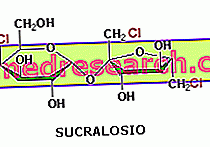Related articles: Vegetative State
Definition
The vegetative state is a chronic condition characterized by the absence of consciousness and responsiveness, due to a serious dysfunction of the cerebral hemispheres, but with sufficient savings of the diencephalon and the brainstem. This means that the neurovegetative and motor reflexes are preserved and the sleep-wake cycle is resumed (although this does not always reflect a specific circadian rhythm and is not associated with environmental stimuli). In the vegetative state, in particular, the ability to maintain arterial pressure, respiration and cardiac function, sufficient for survival, is preserved. Furthermore, there are signs that indicate the integrity of the reticular formation (eg opening and movement of the eyes) and of the brainstem (eg reactive pupils, oculo-cephalic reflex and, sometimes, yawning, chewing and swallowing).
The patient can perform involuntary movements in response to painful stresses, but does not show awareness of himself or the environment that surrounds him and cannot interact with others or develop responses aimed at external stimuli. In the vegetative state, there is no cognitive function, since the cortex is severely damaged. Typically, in fact, this condition occurs after the coma and coincides with the resumption of the function of the brainstem and the diencephalon, but not of the cortical one.
The most frequent causes are traumatic brain injuries and widespread cerebral hypoxia. However, any disorder of various traumatic, vascular, anoxic or infectious nature that results in damage to the central nervous system can cause a vegetative state.
The vegetative state can be the consequence of a toxic encephalopathy, an ischemic infarction, an intracerebral hemorrhage or a mass occupying the cortex or the brainstem.
Possible Causes * of Vegetative State
- Cardiac arrest
- Diabetes
- Embolism
- Cerebral hemorrhage
- Stroke
- Cerebral ischemia



